Australia’s wealthy elite have hotels all over the world
Sure, the rich have mansions, corporate jets, superyachts and fast cars, but it seems the must-have asset these days is hotels - from New York to Byron Bay.

The Paspaley family has one on Wall Street in New York.
Justin Hemmes has a few, and Gerry Ryan has one with a winery. Greg Coffey has one on a remote Scottish island, while Charlotte and Ervin Vidor have added some in Switzerland and Austria in the past year.
Nick Andrianakos is building one in Greece’s ancient former capital. Paul Little has one in central Melbourne and another on the Victorian coast. The Oatleys have an entire island of them.

See where all the hotel owners rank on this year’s full The List - Richest 250
Brian Flannery has a luxurious one in Byron Bay, for which he restored a disused railway, and Chris Morris has one that’ll cost you $20,000 per night.
And then there are the Roches, the Karedises, the Laundys, the Walkers, the Schwartzes...
Sure, billionaires have mansions, superyachts and fast cars, but it seems the must-have asset these days is hotels.
Morris, founder of Computershare, liked staying in luxury hotels around the world so much he started buying and building them himself. He has ploughed $418 million into his Northern Escape Collection of tourism assets in north Queensland, including the five-star Orpheus Island Lodge and Mt Mulligan Lodge.
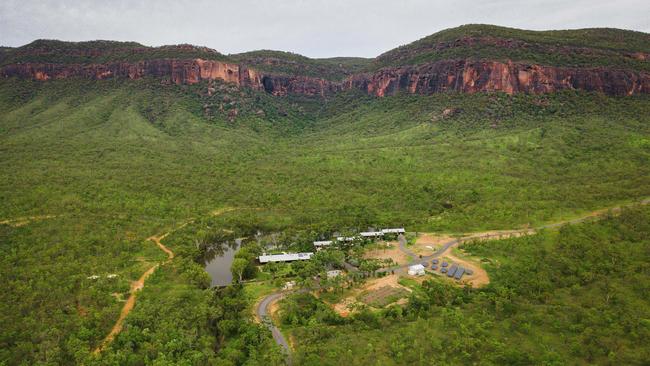
Morris opened the $20,000-plus-a-night Pelorus Private Island in December, a resort accessed via a superyacht or a 30-minute helicopter flight from Townsville. The 400-hectare island boasts pristine wilderness and picture-perfect fringing reefs, and guests can dive, snorkel, fish, cruise, jet ski, paddleboard and do yoga.
The Paspaley family of pearling fame got into the game comparatively recently, although the 14-floor, 9000sq m building that now houses its Wall Street Hotel has been in family hands since 1987.
The building stands at the junction of Wall Street, Water Street and – in a nice coincidence – Pearl Street, and was formerly used as office space. A revamp transformed it into the swanky hotel that opened in New York’s financial district in mid-2022, featuring rooms with pearl- and oyster-inspired decor. In another nod to the family’s heritage, the Lounge on Pearl bar has carpet in the same teal colour as the Western Australian waters where Paspaley pearls are harvested.
Then there is the ancient Greek capital Nafplio, a coastal town on the Peloponnese peninsula, about two hours’ drive from the modern-day capital, Athens. Nick Andrianakos is building a hotel there, slated to open later this year – he says it’s a way to give back to the country of his birth.
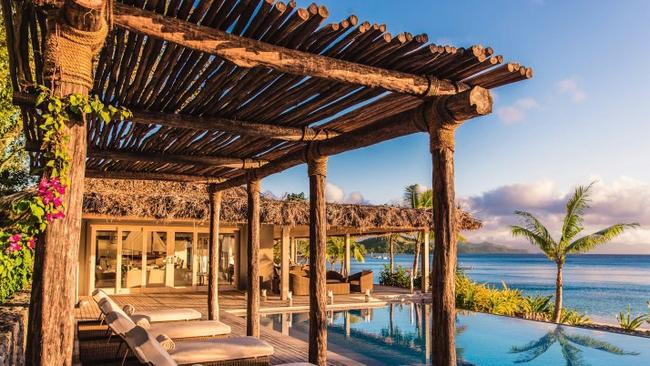
Australia’s wealthy elite have hotels in all sorts of eclectic places, but Melbourne billionaire Shesh Ghale has one of the more interesting portfolios.
Ghale and wife Jamuna Gurung bought Hotel ‘t Putje in the Belgium tourist town of Bruges in 2016, own a hotel in Frankfurt that focuses on the business and banking market, and are building their dream hotel in Kathmandu, the capital of their birthplace, Nepal.
Each has its unique characteristics and challenges, Ghale says. “With ‘t Putje, I like historic buildings with character, history and a good location – all those things fitted well on this property and, of course, Bruges is the only city in Europe where all structures are either churches, hotels or restaurants, or beer and chocolate shops,” he jokes.
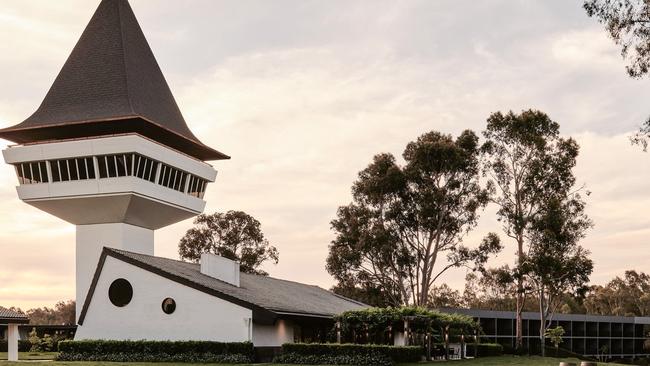
He says friends introduced him to the property when it was being sold by administrators eight years ago. The Brussels bombing happened soon after the deal, which had an obvious impact on tourism numbers in Belgium, then Covid hit in 2020. But the hotel stayed open, and at one point provided relief accommodation for homeless locals and families dealing with domestic violence.
More recently, tourism numbers have returned, and Ghale says occupancy levels are hovering around 90 per cent. “It’s a small investment, but worthwhile. It is spread over 800sq m – a low-rise, centuries-old character building near the canal. It’s going to be a long-term holding property.”
He and Gurung also own Frankfurt’s four-star Skyline Hotel in a joint venture, after purchasing an office building in 2013 and converting it into accommodation. This year, they are adding another floor with 62 more rooms – Ghale says room prices in Frankfurt tend to skyrocket during the city’s numerous big exhibitions and trade fairs.
Then there is Kathmandu, a place Ghale describes as a “different world altogether”, where planning processes are slow and the country’s remoteness means materials have to be sourced overland from China or other countries.
“We are building a five-star luxury hotel, which we are hoping to be the best hotel in Nepal, but the building process has been running for over a decade now. Within 12 to 18 months it will come into operation, with 225 keys and the largest event facility in Kathmandu.”
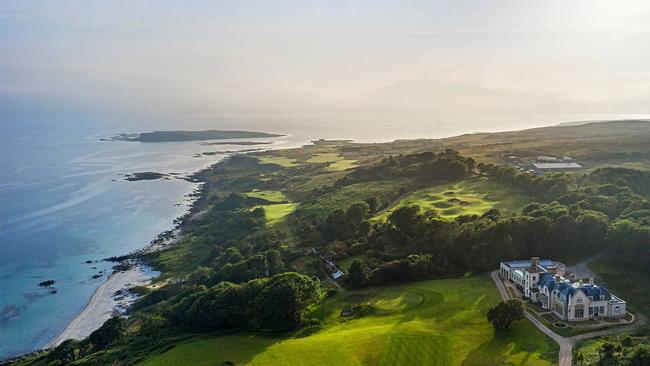
Other owners of hotels overseas include hedge fund manager Greg Coffey, who transformed a manor house and farm on the windswept Scottish island of Jura into a spectacular golf course and luxurious resort.
The Vidors’ Toga empire owns about 70 hotels across Australia, New Zealand, Asia and Europe, including Adina apartment hotels in cities such as Copenhagen, Munich, Berlin, Budapest and Singapore.
Last year, Adina opened a hotel on a former industrial site in Geneva, as well as its second facility in Vienna. This year, the brand plans to open a 108-apartment hotel in the city’s 48-storey Danubeflats building, which will be Austria’s tallest residential tower, standing 180m high.
Back in Australia, billionaire Harry Triguboff owns more hotel rooms than anyone else in the country, with his Meriton Suites apartment empire numbering 23 sites from Brisbane to Melbourne. He had a succinct reason for going into hotels two decades ago. At the time, he says, “hotels brought more income than residential flats”.
He notes, however, that building apartments is probably a wiser long-term investment. “Residential is a lot safer than serviced apartments. When we had the [Covid] virus, everyone ran away. No one ran away from residential. At the moment I have enough serviced apartments. I have more than 6000 serviced apartment rooms, and 5000 residential units. But I am developing more residential units.”
Sam Arnaout’s Iris Capital owns Casino Canberra, Lasseters in Alice Springs, at least 35 pubs, a collection of Ibis Hotels around Australia, and big construction projects in Newcastle, Sydney’s Manly and on the Gold Coast.
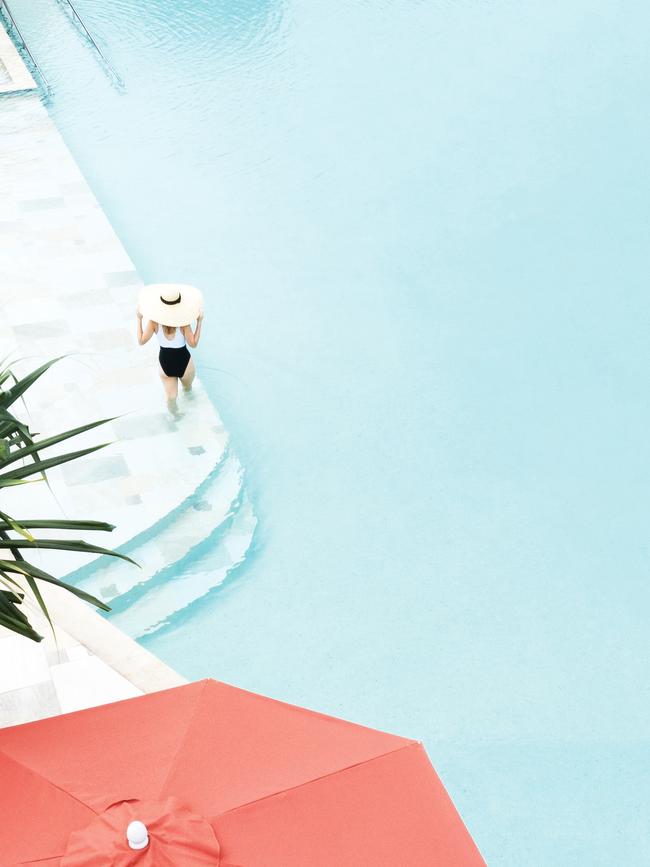
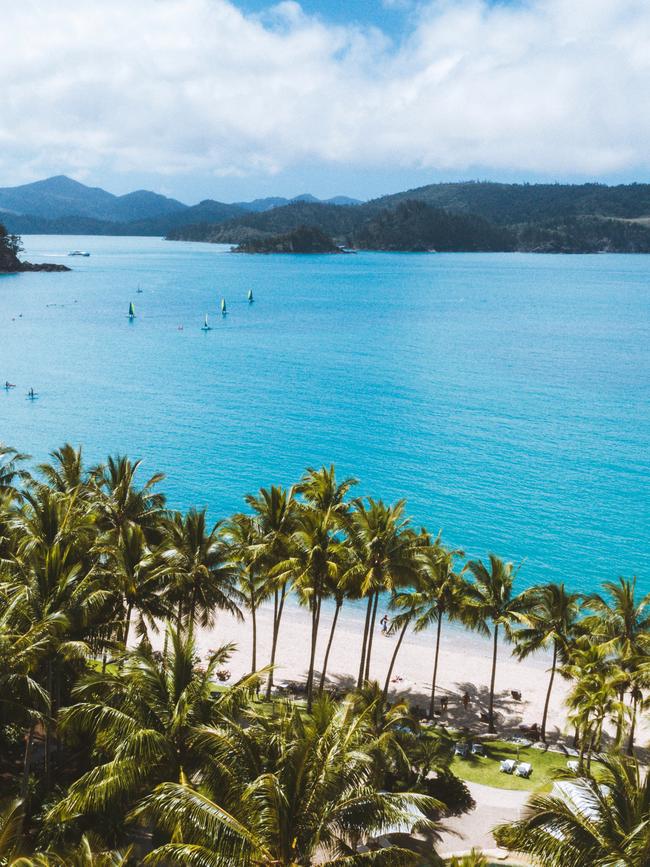
His rationale for buying hotels and resorts is diversification – and accommodation is only a short shift from the hospitality industry that his pubs sit in.
“We see the local domestic market as very strong, particularly while international travel remains expensive,” he says. “It’s having a positive impact for us domestically. For a short-stay vacation, it’s advantageous. Overseas travel [has] become so prohibitive. So we are definitely on the hunt to buy more accommodation hotels. Yes, we will buy more, because we have an already existing property portfolio that is built to scale.”
Melbourne property doyen Max Beck and transport magnate Lindsay Fox built the Hyatt Place hotel at their Essendon Airport precinct in Melbourne for the steady income that business travellers supply, given the dozens of office blocks and car yards nearby.
The 160-room complex includes a restaurant, bar, gym and a conference centre that can accommodate 1200 guests – it was the venue for Bill Shorten’s election-night gathering when his Labor Party lost in 2019.
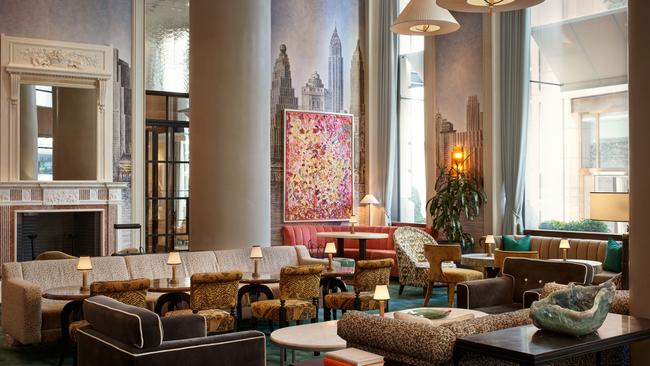
“There are 200 tenants at Essendon, and if the company is paying for it, you want to be comfortable in it, so I still think hotels are better than Airbnb for business,” Beck says. “There’s food and a gym, so there will always be a market for these sorts of hotels. They’re a good investment if you get them in an area where there’s little competition.
“It obviously got hit during Covid, but it has gone from strength to strength since then. We do business with the airlines for their staff, and you’ll find that even at the weekend we’ve got a lot of guests coming into town from the country, from the north of Victoria. So we wouldn’t change a thing.”
Beck, a Melbourne property veteran, has built and owned several business-focused hotels in the past 30 years, including on St Kilda Road in Melbourne and in Newcastle. He says he once looked at buying the Bedarra Island resort off the coast of Queensland, but turned it down.
“I have never liked islands. It was on sale for $10 million and I talked to someone else who had one and they said, ‘Never buy a bloody island.’
“You have to bring everything in, like food and water, and as a customer, once you get to the island, they can do whatever they want with you.”



